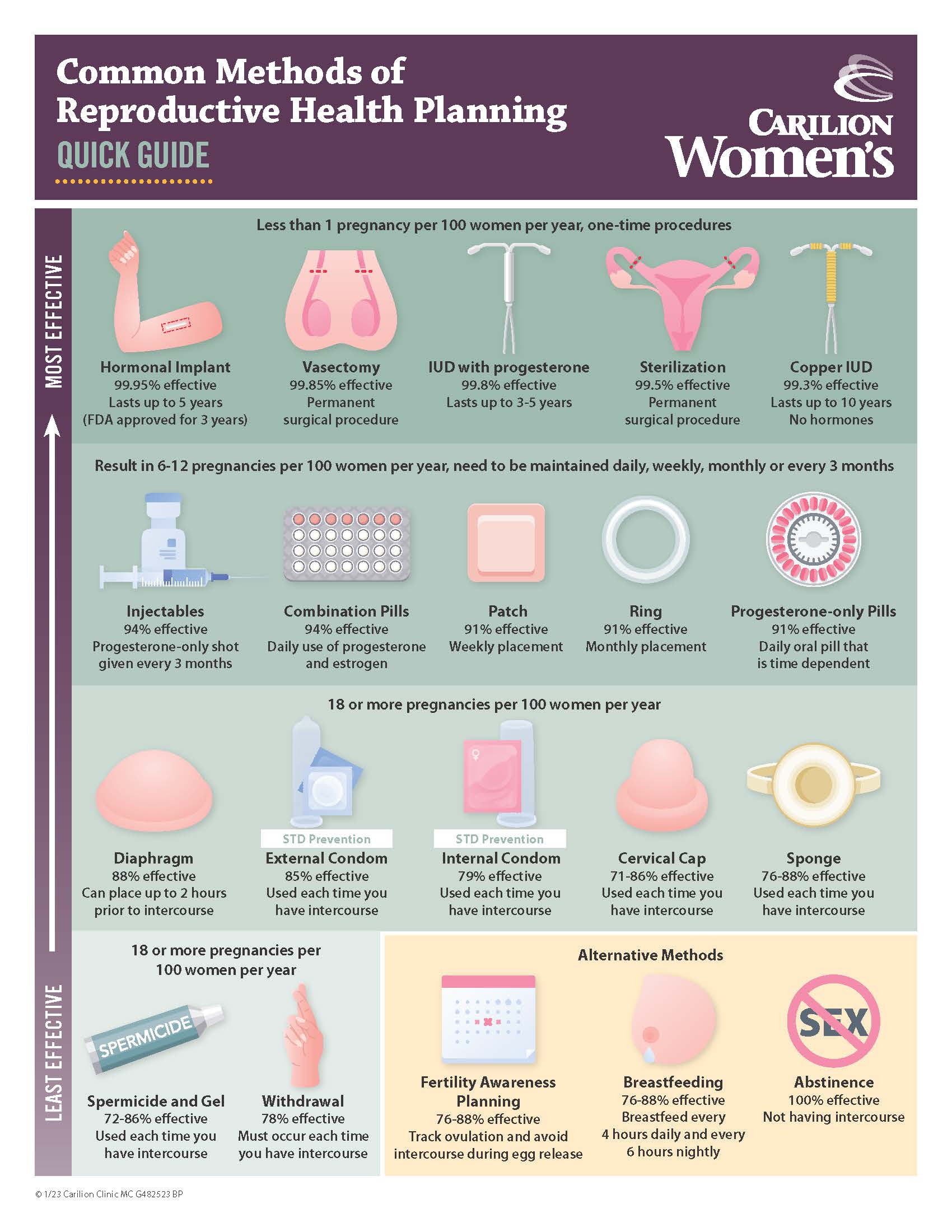Today, women have more birth control choices than ever before. That’s a good thing—but it can also feel overwhelming.
To help make sense of it all, Jaclyn Nunziato, MD, an OB/GYN with Carilion Women’s, gives us the rundown about the most common options and what women should know when making their decision.
What are the different types of birth control?
Short-term hormonal options
The most common hormonal option is the pill, which contains estrogen, progesterone or both. Pills can be adjusted to fit individual needs—whether making periods lighter or less frequent, providing better cycle control or helping with things like ovarian cysts.
But daily pills aren’t right for everyone. Other hormonal methods include:
- The patch – placed on the skin and changed weekly.
- The vaginal ring (NuvaRing) – inserted into the vagina and changed monthly.
Long-term hormonal options
Long-acting reversible contraceptives (LARCS) are highly effective, low-maintenance and only have progesterone, making them a popular choice:
- Nexplanon implant – placed in the arm, works for up to 3 years
- Depo-Provera shot – given every 3 months in the doctor’s office
- Hormonal IUDs (Mirena, Kyleena) – inserted into the uterus, effective for 5+ years
Non-hormonal options
For women who want to avoid hormones, there are several choices:
- Copper IUD (Paragard) – hormone-free, effective up to 10 years
- Barrier methods – condoms (male or female), diaphragms, sponges, cervical caps
- Spermicide – used with or without barrier methods
Permanent options are also available, like tubal ligation for women or vasectomy for men.
Tip: Even if you use another form of birth control, condoms are recommended to protect against sexually transmitted diseases (STDs).
How effective are these methods?
Effectiveness depends on both the method and how it’s used. Pills, patches and rings work well, but missing doses or forgetting to replace them can reduce protection. Long-acting methods like IUDs and implants are the most reliable (99% effective) because you don’t have to think about them daily.
Is long-term birth control safe?
Yes. “Long-acting options are safe and especially helpful for women who don’t want to become pregnant in the next several years,” says Dr. Nunziato. They’re also a good choice for women in their 40s who want reliable contraception until menopause.
Choosing the right option
Your health history can play a big part in choosing birth control, so it’s important to talk with your doctor before starting any method. For example, women over 35 who smoke shouldn’t take pills with estrogen because of the risk of blood clots.
The “right” option really depends on your health, lifestyle and plans for the future. “Birth control should be tailored to each woman’s needs,” says Dr. Nunziato. “We spend time with our patients to find the method that’s the best fit for them.”
If you have questions or want to start or change birth control, reach out to your primary care doctor or women’s healthcare clinician.


